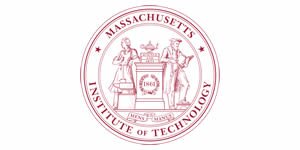Researchers have discovered a new way to grow graphene that deliberately adds structural defects to enhance its usefulness in electronics, sensors, catalysts, and more. Using a specially shaped molecule called azupyrene, scientists can produce graphene films rich in beneficial 5–7 ring defects—imperfections that make the material more interactive, more magnetic, and more electronically versatile.
Author: WeWorldMedia-admin
U.S. National Science Foundation
Directorate for Mathematical and Physical Sciences
Division of Materials Research
Preliminary Proposal Due Date(s) (required) (due by 5 p.m. submitting organization’s local time):
June 23, 2025
Full Proposal Deadline(s) (due by 5 p.m. submitting organization’s local time):
January 27, 2026
Important Information And Revision Notes Estimated number of awards has been revised. Minor changes have been made in Sections I (Introduction) and II (Program Description). In the Project Description of full proposals, under “Other Significant Activities”, the section on “Broadening Participation Strategic Plan” is no longer required nor accepted. MRSEC-specific review criteria have been slightly revised. In particular, one criterion previously used for evaluating “The Center as a Whole” has been removed.
Proposals must be prepared in accordance with the NSF Proposal & Award Policies & Procedures Guide (PAPPG). Use the version of the guide that
In-brief analysis
December 3, 2025
Data source: Bloomberg L.P.
Note: Data through November 26, 2025. All crack spreads are calculated against the Dated Brent crude oil spot price.
Global refinery margins for diesel have widened since late October and increased to their highest level all year, following refinery outages in Russia and in the Middle East and new sanctions on Russia’s crude oil, leading to limited refinery production and a decreased global diesel supply. The impact was most pronounced in the Atlantic Basin, contributing to higher prices at the Amsterdam, Rotterdam, Antwerp (ARA) shipping hub, a key benchmark for European prices, as well as at New York Harbor and the U.S. Gulf Coast. The higher global prices also affected prices in the United States because U.S. refiners can sell into both domestic and international markets.
In 1913, Henry Ford cut the time it took to build a Model T from 12 hours to just over 90 minutes. He accomplished this feat through a revolutionary breakthrough in process design: Instead of skilled craftsmen building a car from scratch by hand, Ford created an assembly line where standardized tasks happened in sequence, at scale.
The IT industry is having a similar moment of reinvention. Across operations from software development to cloud migration, organizations are adopting an AI-infused factory model that replaces manual, one-off projects with templated, scalable systems designed for speed and cost-efficiency.
Take VMware migrations as an example. For years, these projects resembled custom production jobs—bespoke efforts that often took many months or even years to complete. Fluctuating licensing costs added a layer of complexity, just as business leaders began pushing for faster modernization



